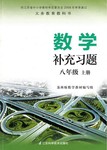题目内容
This design is ________ satisfactory.So you’ll have to try your best to better it.
A.nothing but B.anything but C.all but D.everything but
B

 同步练习河南大学出版社系列答案
同步练习河南大学出版社系列答案 同步练习西南师范大学出版社系列答案
同步练习西南师范大学出版社系列答案 补充习题江苏系列答案
补充习题江苏系列答案 学练快车道口算心算速算天天练系列答案
学练快车道口算心算速算天天练系列答案Almost every machine with moving parts has wheels, yet no one knows exactly when the first wheel was invented or what it was used for. We do know, however, that they existed over 5,500 years ago in ancient Asia.
The oldest known transport wheel was discovered in 2002 in Slovenia. It is over 5,100 years old. Evidence suggests that wheels for transport didn’t become popular for a while, though. This could be because animals did a perfectly good job of carrying farming tools and humans around.
But it could also be because of a difficult situation. While wheels need to roll on smooth surfaces, roads with smooth surfaces weren’t going to be constructed until there was plenty of demand for them. Eventually, road surfaces did become smoother, but this difficult situation appeared again a few centuries later. There had been no important changes in wheel and vehicle design before the arrival of modem road design.
In the mid-1700s, a Frenchman came up with a new design of road—a base layer (层) of large stones covered with a thin layer of smaller stones. A Scotsman improved on this design in the 1820s and a strong, lasting road surface became a reality. At around the same lime, metal hubs (the central part of a wheel) came into being, followed by the pneumatic tyre(充气轮胎) in 1846. Alloy wheels were invented in 1967, sixty years after the appearance of tarmacked roads (柏油路). As wheel design took off, vehicles got faster and faster.
【小题1】What might explain why transport wheels didn’t become popular for some time?
| A.Few knew how to use transport wheels. |
| B.Humans carried farming tools just as well. |
| C.Animals were a good means of transport. |
| D.The existence of transport wheels was not known. |
| A.It was easier than wheel design. |
| B.It improved after big changes in vehicle design. |
| C.It was promoted by fast-moving vehicles. |
| D.It provided conditions for wheel design to develop. |
| A.By giving examples. |
| B.By making comparisons. |
| C.By following time order. |
| D.By making classifications. |
| A.The beginning of road design. |
| B.The development of transport wheels. |
| C.The history of public transport. |
| D.The invention of fast-moving vehicles. |
